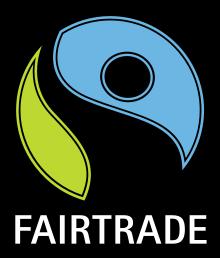Fair trade certification
It creates social and economic opportunities through trading partnerships with marginalised farmers and craftspeople in developing countries so that more customers are accessible to their products and they receive a favorable deal.The Fairtrade system committed to a programme of Monitoring, Evaluation and Learning (MEL), which aims at generating recommendations and analysis in support of greater effectiveness and impact.These data form a basis for understanding the dynamics of how certification is developing, and how the impacts of Fairtrade are being distributed between producer organizations, geographies and products.In order to qualify as Fairtrade producers, cooperatives must meet the strict standards set by certifiers which implies that their constituent farmers must be quite skillful and educated.[13] A monopsonist cooperative in charge of Fairtrade certification may try to grow the fair trade industry for profit and not so much for the lives of the small farmers.

Fair tradeFairtrade Internationalproduct certificationmovementFLO InternationalInternational Fairtrade Certification MarkEuropeAfricaAustraliaNew ZealandFair Trade Certified Markprivate standardsthird world countriesstandardscollectively bargainminimum wageThe Fairtrade Foundationmonopsonistmulti-stakeholder initiativesFair Trade FederationWorld Fair Trade OrganizationUTZ CertifiedFairtradedirect tradeFairtrade certificationWhole Foods MarketBlue Angel (certification)Carbon emission labelCarbon TrustCertified woodCommunity-based monitoringEcolabelEco-Management and Audit SchemeEnergy input labelingEnergy rating labelEthical consumerismEthical eatingEthical tradeEU EcolabelFair trade coffeeFair Trade USAFarm assuranceFree rangeFriend of the SeaGlobal Ecolabelling NetworkGreen brandsGreen consumptionISO 14000 familyMandatory labellingNSF InternationalOrganic certificationStandards of identity for foodSustainable consumer behaviourSustainable consumptionSustainable packagingSustainable seafood advisory lists and certificationVegetarian and vegan symbolismWayback MachineHistory of fair tradeFair trade impact studiesFair trade debateAlternative trading organizationTrade justiceTrade Justice MovementSweatshopsBody shoppingWorldshopFairtrade Labelling Organizations InternationalNetwork of European WorldshopsEuropean Fair Trade AssociationInternational Resources for Fairer Trade (IRFT)FLO-CERT (inspection & certification)Asociación del Sello de Productos de Comercio JustoFair Trade Association of Australia & New ZealandFairtrade Mark IrelandAssociation Max Havelaar FranceStichting Max HavelaarMax Havelaar-Stiftung SwitzerlandFairtrade CanadaFair Trade USA (formerly TransFair USA)Alter EcoArtisans du MondeCafédirectCtm altromercatoDivine ChocolateEqual ExchangeEqual Exchange TradingRainforest AllianceGepa The Fair Trade CompanyHandcrafting JusticeSERRV InternationalTraidcraftTwin TradingTen Thousand VillagesFairtrade TownList of Fairtrade settlementsFairtrade fortnightMake Trade FairNo SweatWorld Fair Trade DayBlack Gold (2006 film)environmentalaccountabilityEthicsAarhus ConventionClimate justiceCorporate accountabilitybehaviourenvironmental responsibilityresponsibilitysocial responsibilityDirty handsEnvironmental racismin Russiain the United Statesin Western Europe inequality in the UKinjustice in EuropeEthical bankingEthical codeExtended producer responsibilityExternalityLittle EichmannsLoss and damageOrganizational ethicsOrganizational justice